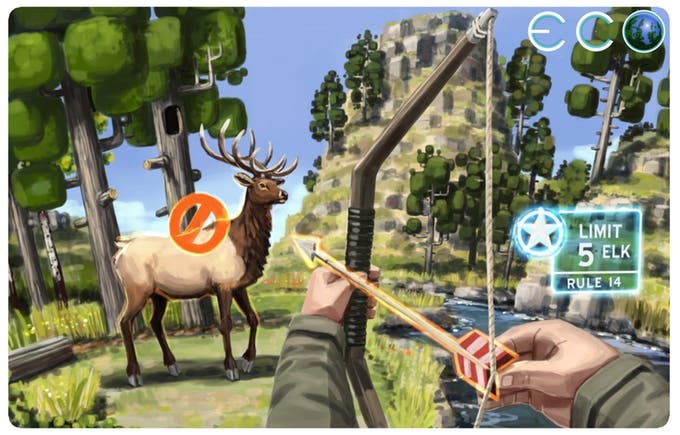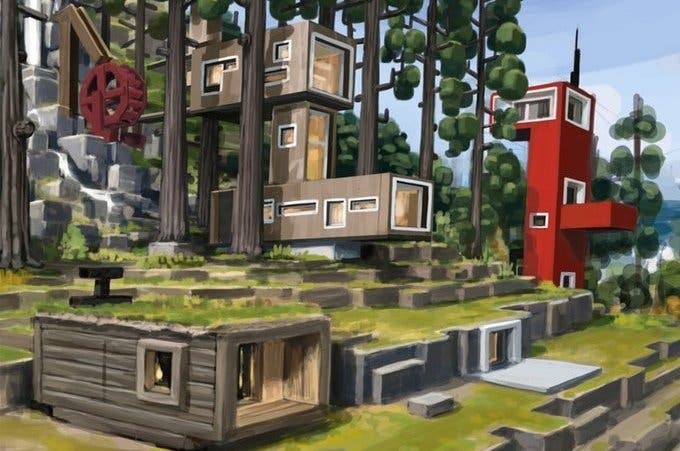Global survival sim Eco launches on Kickstarter
UPDATE: Funded! Stretch goals announced.
UPDATE 24/08/2015 7.44pm: The Eco Kickstarter has surpassed its $100k goal with 16 days to go before its 9th September deadline.
The current tally is at $106,535.
If it reaches $150k developer Strange Loop Games will add a land ownership system. This will allow players to decide how to divvy up property. Will it be allotted upon entering the world or auctioned off to the highest bidder? Maybe the community will decide to keep all land public or sanction off parts of it as a wildlife reserve. There will even be options to rent out properties and the community will be able to organise their own property taxes for this simulated world. For more details, check out the latest Kickstarter update.
At $200k the servers will be scaled up and at $250k a new biome will be added.
ORIGINAL STORY 07/08/2015 7.40pm: Eco, an ambitious ecosystem sim announced back in June, has launched a Kickstarter campaign.
The premise of Eco is simple: everyone shares the same planet and must utilise its limited resources to evolve its society to prepare for an impending natural disaster (asteroid, draught, flood, etc).
If you're careless about natural resources, they'll disappear for good. Raze a forest and fail to plant a new one? Uh oh: you've just made a wasteland and wood is that much rarer a commodity. Go overboard in your salmon catching expeditions? Congratulations, salmon are now extinct! Build a factory near a river and say goodbye to all the animals that used to live on its fresh water.
To combat trolls jumping into the game and ruining things for everyone, Eco will allow players to vote on rules dictating what folks are allowed to do. So if the community sets a law that you can only chop down 10 trees a day, a message will come up preventing you from cutting down any more until the next day.
Eco isn't a "god game" as each player will occupy an individual role controlling a human avatar. As such, you can choose to operate as a lumberjack, carpenter, or fisherman for example. "It will not be possible for one player to specialise in all the skills necessary to build in Eco," developer Strange Loop Games explained. "Collaboration is required."
Unlike most games where players can only buy or sell items, Eco will allow players to buy and sell labour. If you want a bigger house, you'll have to pay a carpenter to build one for you and the payment will be held in escrow until completion.
Since this is such a complex undertaking for any individual player to wrap their head around, ecological data for Eco will be visible for players, so the community will have an easy way to notice that, say, the bees are disappearing.

While Eco is designed to be played by a large community, there will be an option to play it in single-player if one hosts their own server. In such scenarios the size of the world can be scaled and you can increase the rate your civilisation acquires the knowledge needed to build more advanced technology.
As we detailed before, Eco's prototype has been tested among middle-school student and has had a positive effect among the 60 pupils it was tested on. As such, the US government has assisted in the game's funding as it hopes to use the finished version of Eco among a larger sample to improve our growing generation's environmental literacy after the US was ranked 17th in science according to the 2011 National Assessment of Educational Progress.
The government grant only covered a small portion of Eco's full development costs, so Strangle Loop still needs $100k to make the rest of the game happen. Players have until 9th September to fund it and those who pledge $20 will reserve a Steam key for the final game upon Eco's estimated launch in January 2017.

